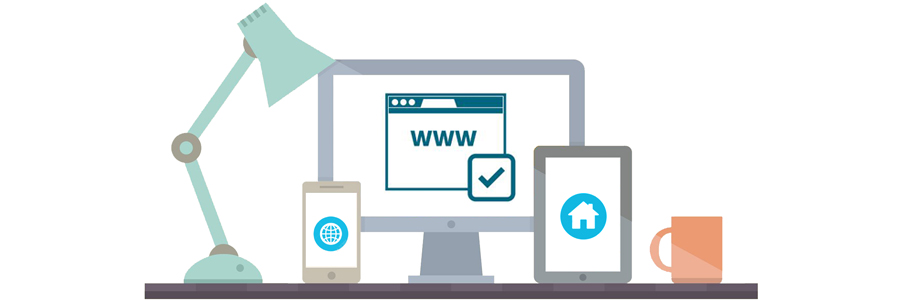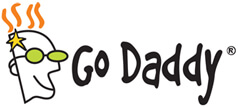The Best Domain Registrars of 2025 – Find Out Who’s #1

Last Updated:
Trying to find the best place to buy domain names can be difficult, especially when there are so many companies to choose from. The truth is that the best domain registrars are often very similar in prices and features, but there are still some important differences that set them apart.
On this breakdown page, we’ve gone ahead and listed the best domain registrar in a few different categories to give people the best options depending upon their specific needs.
One quick thing before you read on—if you do decide to purchase a domain using one of our links (we’d be very grateful) we might receive a small commission from the registrar. This doesn’t affect our reviews in any way whatsoever—in fact, we hate biased sites.
With that said, here are the top places to buy domain names…
The Best Overall Domain Name Registrar:
The Best Domain Name Registrar for Beginners:
The Cheapest Domain Name Registrar:
Now that you’ve see who the best domain registrars are in each category, let’s take a much closer look at why this is true, including some important details!
The Best Place to Buy a Domain Name – Overall Winner: Namecheap
Hands down, Namecheap is our winner for the best overall domain name registrar, and this is for a few important reasons…
They Don’t Jack Up the Price at Renewal Time
Namecheap’s prices are very reasonable and they almost always have coupons available. At the time of writing, a new domain is $8.98/year with a coupon. The nice thing about Namecheap is that they don’t offer a super low entry price and then jack up the price at renewal (yes, it will likely increase but not like going from $0.99 to $20 for basic .com or common extensions).
Low initial registration prices combined with high renewal prices is something that GoDaddy has become famous for. Yes, it’s nice to register a domain for $0.99 but they might charge $8/year for privacy and close to $20 the second year for many domain name extensions. Straightforward, value-based pricing that doesn’t get jacked up suddenly upon renewal is one of the things that makes Namecheap an excellent registrar.
Free Private Registration
Private registration is an important option to have for domain names. It used to be that private registration was mostly associated with spammers, but now it’s the other way around. So many spammers scrape WHOIS data for emails and other details that private registration has become very popular for normal people. Namecheap used to charge for this, but now it’s free.
A Clean Interface & Great Support
Another nice thing about Namecheap is that they’re not constantly trying to upsell you on something via their interface. It’s clean, easy-to-use, and it’s not hard to manage your domains. On top of that, they’ve got great chat support and answer tickets promptly. I’ve never had a problem trying to get an issue resolved with their support.
If you need any more confidence in Namecheap, check and see who our domain (WebHostingBuddy.com) is registered with—you’ll see it’s Namecheap!
The Best Domain Name Registrar for Beginners: GoDaddy
While they may not be the cheapest, and while we aren’t big fans of their web hosting, they are definitely the easiest to use and the most beginner-friendly domain name registrar around (despite the upsells in their interface). Let’s take a look at what makes GoDaddy stand out as a registrar…
A Simple, Easy-to-Understand Interface
GoDaddy is probably the easiest to use for beginners in terms of their UI/UX, and this shouldn’t really come as a surprise since they’re the largest domain registrar in existence. Because of this, they put a lot of money into the design and flow of their website. They do occasionally push upsells via their interface which can sometimes be irritating, but it’s not even close to being as bad as other registrars like Network Solutions and Web.com (which we recommend you avoid at all costs).
Their Support for Domains is Top-Notch
GoDaddy has 24 hour telephone support for domains names and from what we can tell, this is US-based support too. They also have a chat/ticket system as well, but the phone support is really where they shine, especially for people who are new to using domains and building websites. Their hosting support isn’t as good, but domain support is pretty awesome. If you have a problem or don’t know what to do, you can get someone on the phone pretty quickly and get your issue resolved.
The Cheapest Place to Register Domain Names: NameCheap
Honestly, we used to recommend Namesilo here, because at the time Namecheap used to charge for domain privacy (they don’t anymore), and Namesilo had it for free. One top of that, Namesilo used to be cheaper for odd extensions like .shop and even .com, but now, Namecheap takes the cake for all of these. So, we’ve adjusted these recommendations for those reasons to Namecheap. Again, look where this domain is registered—need we say more?
This isn’t to say that Namesilo doesn’t have a place, as their bulk pricing tends to be decent if you own a few hundred domains, but overall, it now looks like Namecheap, is well, the cheapest.
Domain Name Registrars to Avoid
Because we’re honest and transparent, we like to tell people which registrars are good and also which registrars we believe aren’t any good and should be avoided. We don’t care what kind of commissions they pay and will never promote something based on commissions—if it’s not something we use and can recommend, we’ll tell you not to buy it!
With that said, we highly recommend avoiding Network Solutions, Web.com, and Register.com (they call these websites the “Web.com family”). They have some of the worst customer service we have ever experienced, and try to make you pay for all sorts of things that other registrars provide for free (such as technical support, privacy, and other simple services). Yes, that’s right—Network Solutions will not even provide technical support without making you pay an upgrade support fee. In fact, we spent 30 minutes on the phone with them and they refused to tell us how to make a change to a DNS record (CNAME) without paying for it. Needless to say, we just figured it out on our own and promptly transferred the domain awal.
Aside from having terrible customer service, their interface is extremely cumbersome, outdated, and tries to upsell you at every turn or keep you from transferring domains out of the company by putting buttons in strange places or making you jump through multiple pages to confirm the transfer.
In our opinion, they are an outdated dinosaur that built their reputation before there were better options (there are many now) and they should be avoided at all costs. If you purchase domains from an auction, it’s possible, even likely, that you may end up with one at Network Solutions, but our recommendation would be to transfer out immediately to a cheaper registrar with better support and a better interface.
How to Save Money on Domain Registration Renewal Fees
It’s common practice for some registrars to offer a low first time registration rate on domains and then jack up the fees on renewal, as mentioned earlier on this page. Often times you’ll see 99 cent registrations and then be hit with $20 or more at renewal time.
The best course of action is to choose a registrar that doesn’t do this (unless you’re going to use GoDaddy because they are more beginner-friendly). This way, you can avoid paying a higher renewal cost and just pay what everyone else is paying. In this situation our recommendation is to go with Namecheap because while fees sometimes do increase, they don’t really play games like that.
Just remember, if you’re stuck at a bad domain registrar you can always transfer out somewhere that has lower renewal fees. This is often a better choice because you’re saving money AND getting better customer service.
Domain Privacy—Is It Worth the Money?
Yes—yes it is. WHOIS spamming is at an all-time high, and if you leave your information unguarded you WILL get spammed, and it’s possible that the email address you expose to the public will be permanently burned to the ground by spammers (it’s happened to us). It’s also possible that you’ll have so many spam emails that legitimate contact emails won’t get through. Use privacy if you want to avoid these problems…it’s worth every penny. And if you choose not to, at least use an email address that you can afford to lose and a physical address that you’re ok with showing the public (spammers will grab those too). WHOIS regulations require you to keep accurate information for the domain, so make sure that you don’t put fake information in an attempt to avoid paying for privacy because you could potentially lose your domain name. That said, registrars like Namecheap offer free privacy, so if you have a lot of domains with privacy enabled, you might want to choose a registrar that offers free privacy.


